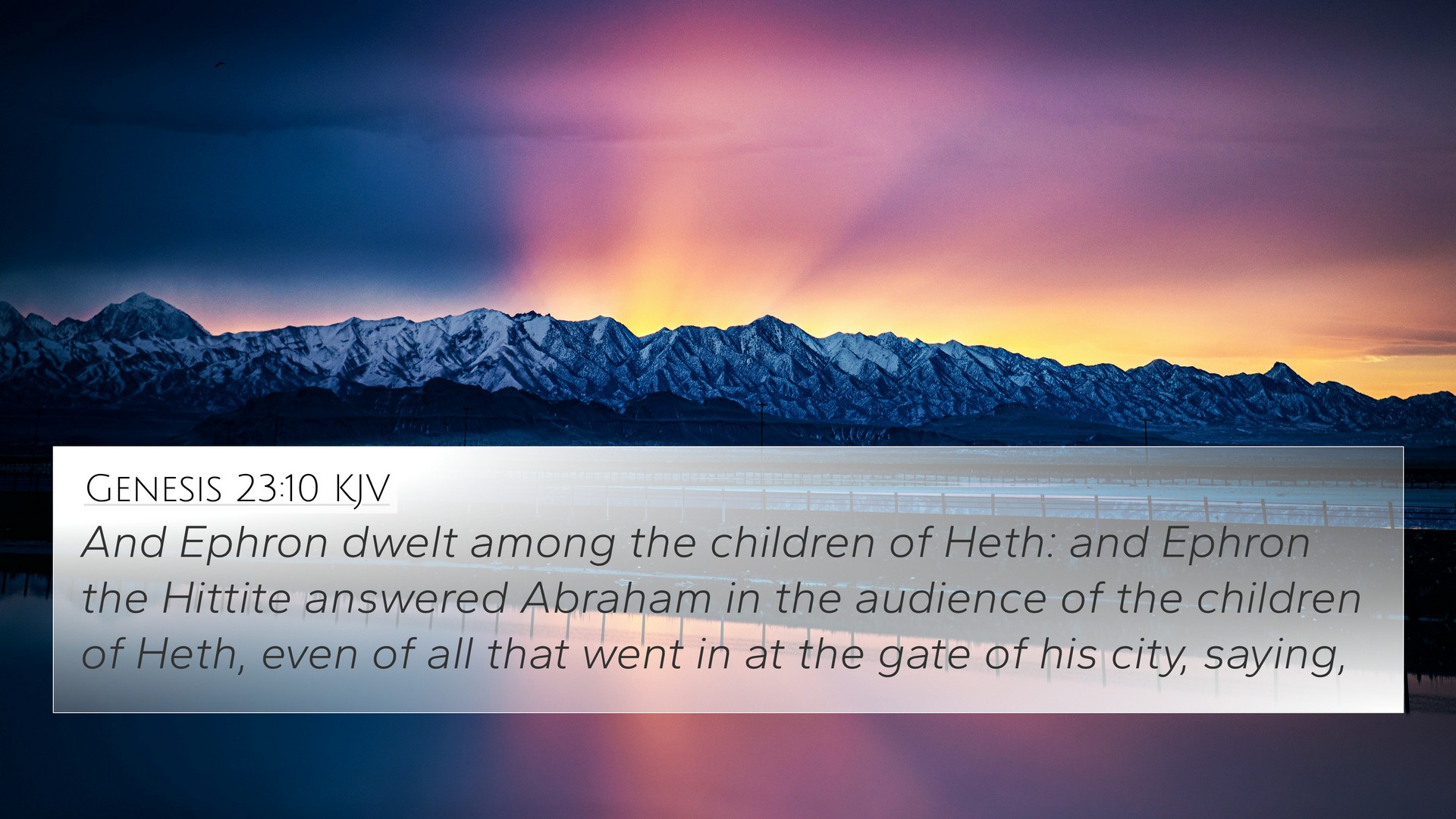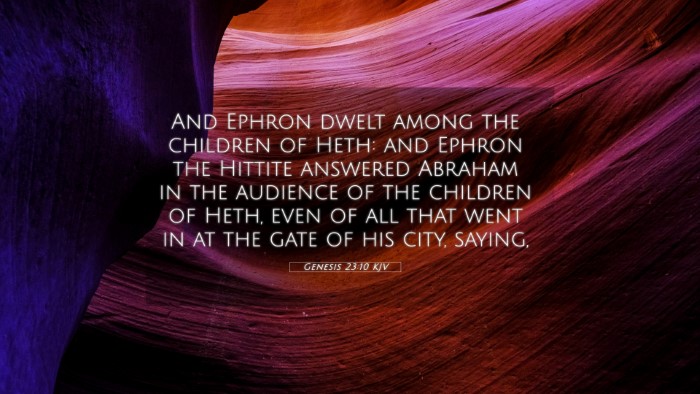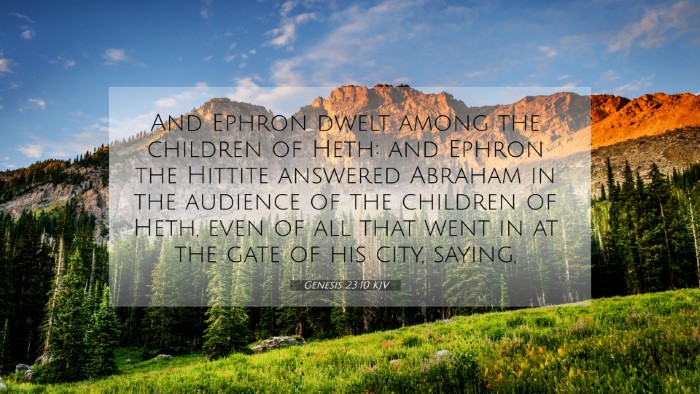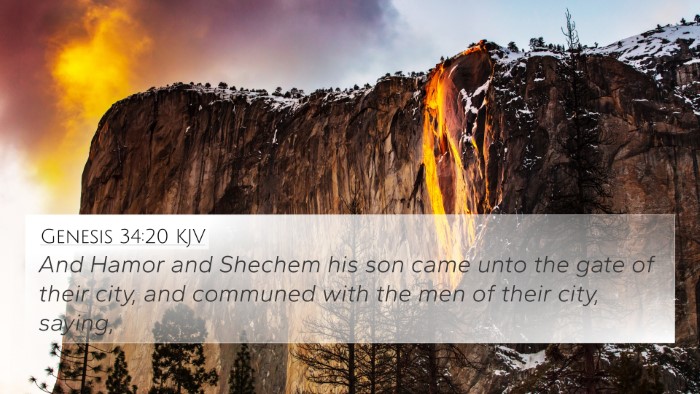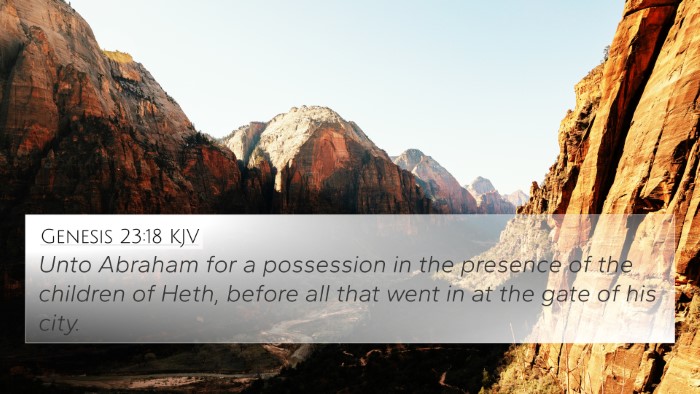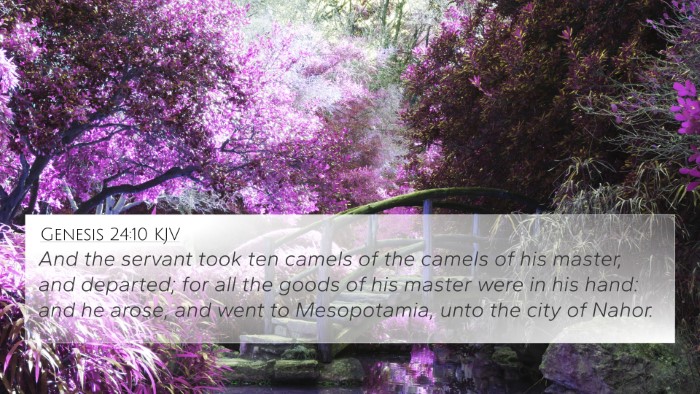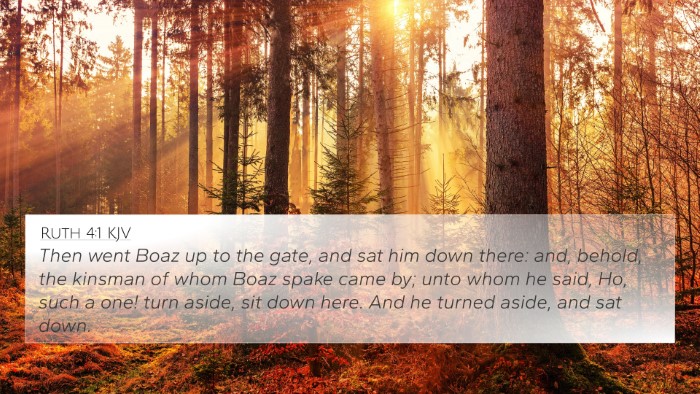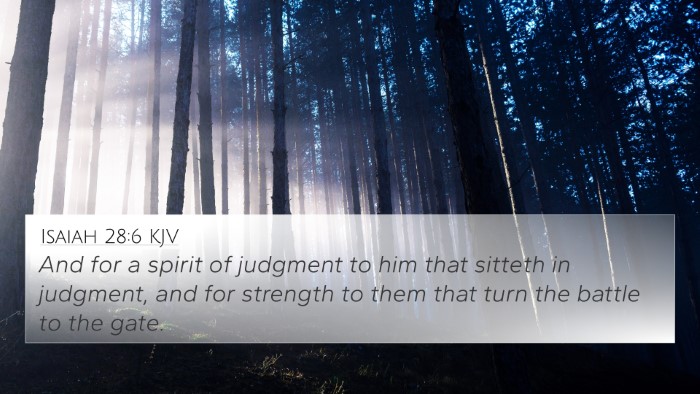Understanding Genesis 23:10
Genesis 23:10 states, "And Ephron dwelt among the children of Heth: and Ephron the Hittite answered Abraham in the audience of the children of Heth, even of all that went in at the gate of his city, saying,". This verse provides crucial insights into the cultural and social dynamics of the time, especially concerning land ownership and burial customs.
Contextual Background
The historical backdrop of Genesis 23 unfolds the narrative of Abraham seeking a burial place for Sarah, his wife. This event shows Abraham’s integration into the land of Canaan and his respectful negotiation for a piece of property, highlighting his faith and the importance of securing a legacy.
Commentary Insights
-
Matthew Henry:
Henry emphasizes the significance of Ephron's response, pointing out that it reflects the custom of open negotiation in ancient times. Ephron’s public declaration was intended to elevate his status among the Hittites and demonstrates social honor.
-
Albert Barnes:
Barnes notes that the mention of Ephron the Hittite is pivotal for understanding the interrelations between tribes. His position at the gate indicates his role as a city elder or leader, integral in decision making.
-
Adam Clarke:
Clarke discusses the importance of the "gate" as a social and legal center where public business was transacted, emphasizing how significant agreements, like land purchases, were made in the presence of witnesses to ensure legitimacy.
Thematic Connections
This verse can be linked to several other themes and scriptures, leading to a deeper understanding of relationships and covenant within scripture:
- Genesis 1:28: God's intention for humanity to inhabit the earth and establish a legacy.
- Genesis 17:8: The promise of land to Abraham and his descendants.
- Genesis 49:29-32: The burial traditions and land significance for the Patriarchs.
- Hebrews 11:9-10: Abraham’s faith in living as a foreigner and seeking a heavenly city.
- Luke 14:28: The wisdom in planning before undertaking significant commitments.
- Psalms 112:6: The remembrance of the righteous and their lasting legacy.
- Matthew 5:5: A beatitude that underscores the inheritances of the meek, parallel to Abraham's peaceable approach.
Cross-Referencing Themes
To better appreciate this verse, consider the following methods for Bible cross-referencing:
- Utilizing a Bible concordance to find related themes and concepts.
- Engaging in cross-reference Bible study to explore the interrelations between the Old and New Testament.
- Employing tools for Bible cross-referencing to identify parallels and connections, such as comparing the burial practices across scripture.
Summary of Insights
Genesis 23:10 encapsulates more than a mere transaction; it unveils the profound respect, cultural practices, and the significance of land ownership among the Hittites and Abraham's legacy. By exploring various commentaries and cross-referencing related scriptures, readers can better grasp the intricacies of Biblical narratives.
Exploration of Related Verses
When delving into connections between Bible verses, Genesis 23:10 provides fertile ground for exploring:
- How do verses about burial practices connect with covenant themes?
- What similarities exist between Abraham's negotiations and other cultural transactions in the Bible?
- How do land promises reflect God’s larger redemptive plan throughout scripture?
- Find cross-references for Abraham’s faith and dealings in other parts of the Bible.
Conclusion
Understanding Genesis 23:10 through the lens of public domain commentaries reveals profound truths about faith, honor, and the legacy of God's people. Readers are encouraged to leverage Bible cross-references to uncover deeper meanings and connections throughout the scriptures.
